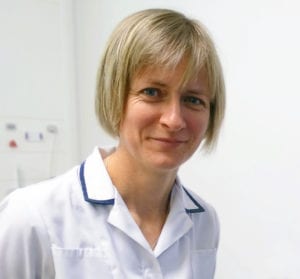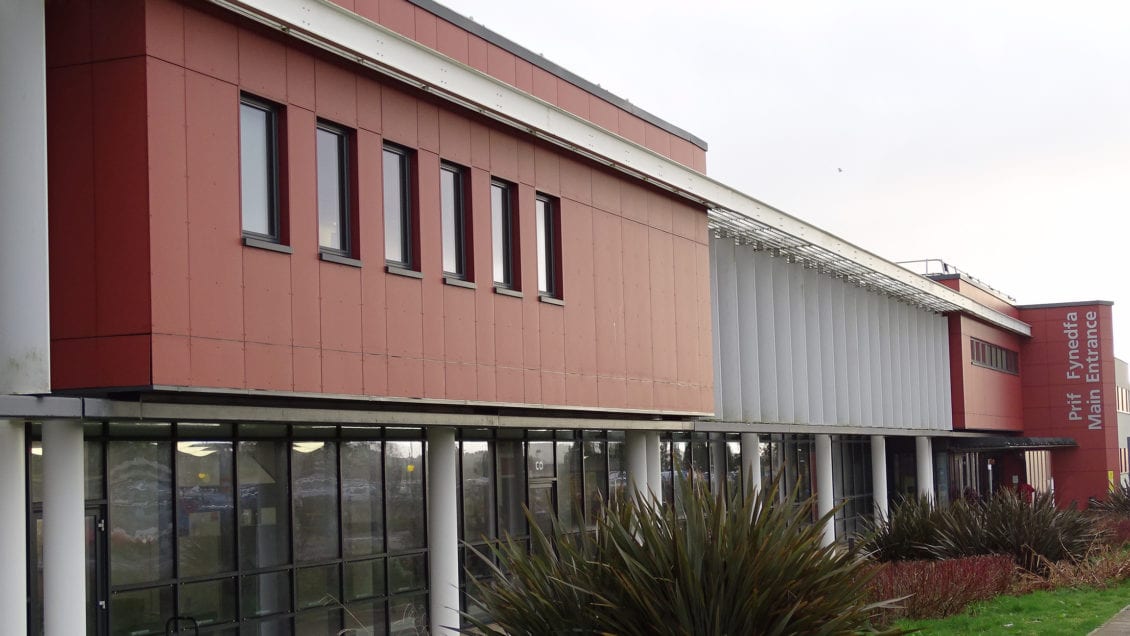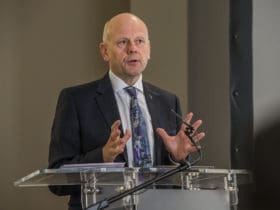Patients are to be recruited for a research study which aims to improve the way people with potentially life-threatening chest injuries are treated.
It’s the latest phase of an ongoing project led by Morriston Hospital consultant physiotherapist Dr Ceri Battle, and focuses on people who have been sent home from emergency departments after injuring their ribs.
While the chest injuries themselves can be relatively minor, they can lead to serious and potentially fatal complications.
Often these complications do not emerge for several days, leading to people returning to hospital as emergency cases.


Dr Battle has been working on the project for more than a decade. She has already developed a risk factor-based diagnostic tool that can identify which patients are most at risk of developing complications.
Now Dr Battle has been awarded a five-year Health Research Fellowship, worth almost £280,000, by Health and Care Research Wales
“Many patients go to the Emergency Department for help when they have hurt their ribs,” she said. “A large proportion of these patients are elderly, frail people who have fallen.
“More than twice as many people fall and hurt their ribs than those who break their hip. However, much less is known about the people who hurt their ribs and how best to manage them.
“If they are sent directly home from the ED, they are expected to manage their injury on their own. This can often mean they need to go back to ED or to their GP.
“If they do get a chest infection or pneumonia, this can lead to a long hospital stay, or can even be fatal.”
Dr Battle said the study aimed to develop standard guidelines to help care for patients discharged directly home, as none currently existed.
The overall work is made up of four studies. For the first, a survey will be conducted with clinicians around the UK to understand how they manage such patients.
For the second, anonymised NHS data on patients with chest wall injuries will be considered. It will look into the similarities and differences between people with injuries who were managed at home.
These will include their age; the severity of their injury; whether they had existing chest conditions; if they were given painkillers and whether these helped; and whether they were eventually admitted to hospital.
In the third study, patients and clinicians will be interviewed. Dr Battle said: “We will interview ex-patients who have hurt their ribs in the past and the ED clinicians who manage those patients to find out what is important to both groups, in terms of what guidance is needed
“We will find out from the patients what they thought worked and what we didn’t give them advice on.
“We assume they need advice on deep breathing and pain control, but there are so many other things that need to be considered.
“There is a whole raft of patients who are discharged and we never see them again. They may still have pain after six months. They may not know when they can return to work, or when they can drive again, and so on.”
In the fourth and final study, the patients, clinicians and research team will come together to write the guidance, based on all the information gathered during the first three studies.
Dr Battle has been awarded a £278,768 Health Research Fellowship by Health and Care Research Wales.
The fellowships support clinicians to become independent researchers by leading and undertaking high-quality research.
It offers part-time funding over five years, which will support Dr Battle to carry out the four studies and any training she needs to achieve this.
“Eventually I will become an independent researcher but we will get a very good project that will benefit patients as well,” she added.
Michael Bowdery, Health and Care Research Wales Head of Programmes, said the standard of applications for the fellowships had been very high.
“We are pleased with the diversity of awards we were able to make, all of which will deliver useful evidence across a range of health and social care priority areas,” he said.
“Investing in this research, and the researchers undertaking it, will contribute to both health and prosperity in Wales.”









Leave a Reply
View Comments